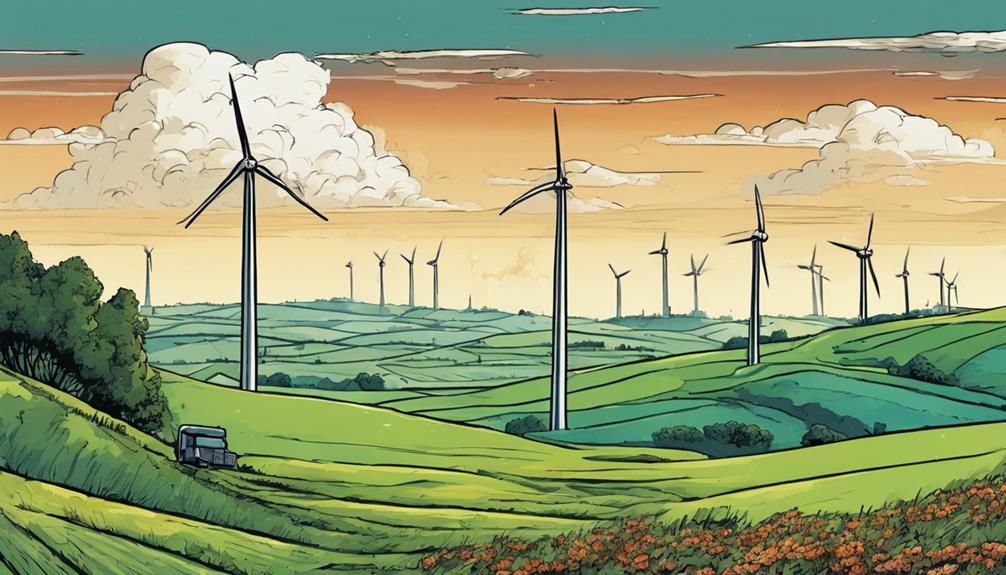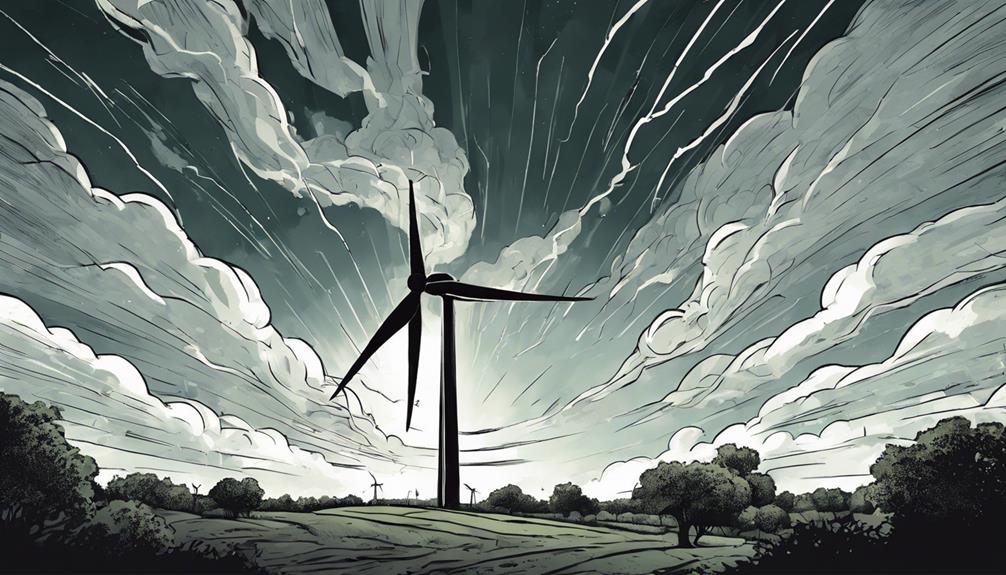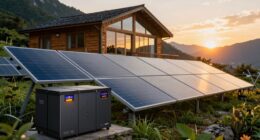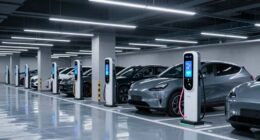As I weigh the pros and cons of solar vs electric power, it's clear that the former is gaining ground. Solar energy harnesses power from the sun, while electric power relies on non-renewable fossil fuels. The environmental benefits of solar power are undeniable, with zero carbon emissions and a reduced carbon footprint. While the initial installation costs of solar panels are high, the long-term savings are substantial. With net metering programs and declining costs, solar power is becoming a more viable option. As I explore this topic further, it's evident that the future of energy production is bright – and solar-powered.
Key Takeaways
- Solar power is a clean and renewable energy source, whereas electric power relies on non-renewable fossil fuels, contributing to carbon emissions.
- Solar panels offer long-term savings on operation costs, despite high initial installation costs, making them a cost-effective option.
- Net metering programs allow homeowners to feed excess solar energy into the grid, offsetting electric bills and providing credits or cash for surplus energy.
- Solar power provides substantial long-term benefits, including reduced monthly bills, year-round energy efficiency, and zero carbon dioxide emissions.
- The cost of solar power has become more affordable in many countries, making it a viable alternative to electric power for energy dominance.
Source of Energy Comparison

When it comes to the source of energy, the difference between solar and electric power couldn't be more stark, with solar power harnessing its energy from the sun and electric power relying on non-renewable fossil fuels like oil, gas, or coal.
As someone concerned about the environment, I'm drawn to solar energy's clean and renewable nature. In contrast, electric power's reliance on fossil fuels makes it a significant contributor to carbon emissions.
This distinction is vital, as our energy choices have a direct impact on the planet's well-being. By opting for solar power, we can reduce our carbon footprint and move towards a more sustainable future.
The choice is clear: solar power is the way to go.
Cost and Maintenance Analysis

As I weigh the costs of solar versus electric power, I'm struck by the significant difference in upfront investment versus long-term savings. While solar panels may have high initial installation costs, they offer substantial long-term savings on operation costs.
In contrast, electric utilities often require additional costs and maintenance fees. Plus, solar panels don't need fuel to operate, which eliminates a major expense. On the other hand, electric power is more readily available in many areas, making it a more convenient option.
However, when I consider the bigger picture, I realize that solar power's long-term benefits far outweigh its initial costs. It's a trade-off I'm willing to make for a cleaner, more sustainable energy future.
Benefits and Advantages

Five significant advantages of solar power stand out to me:
- reduced monthly bills
- year-round energy efficiency
- the ability to offset electric bills and sell excess energy back
- zero carbon dioxide emissions
- the option to store energy in batteries for backup.
These benefits are hard to ignore.
With solar power, I can kiss those hefty electric bills goodbye. Plus, I'll be doing my part for the environment by producing clean energy. And, if I generate more power than I need, I can sell it back to the grid and earn some extra cash. It's a win-win situation.
Cost-Effectiveness Evaluation

Now that I've weighed the advantages of solar power, I'm curious about the cost-efficiency of investing in a solar system, particularly how the initial installation costs balance out against the long-term savings.
The average cost for a 5-kW solar system is around $15,000, which may seem steep. However, solar power has environmental benefits and cuts electric bills, making it a worthwhile investment. In fact, solar power has become more affordable and is even the most economical in some countries.
To ensure cost-efficiency, I need to take into account local weather patterns and property structures. Roof orientation and location also impact the efficiency of solar panels. By evaluating these factors, I can make an informed decision about investing in solar power.
Net Metering and Grid Impact

My solar power system's ability to generate excess energy raises an important question: how can I sell this surplus back to the utility and offset my electric bills through net metering?
The answer lies in net metering programs, which allow me to feed excess energy into the grid and receive credits or even cash. This not only saves me money but also encourages renewable energy investments.
Utilities are updating their net metering programs to accommodate solar energy storage, and some states even require them to offer this service.
As a solar power system owner, I may still rely on the grid for electricity at night, but net metering guarantees I'm making the most of my clean energy.
Frequently Asked Questions
Can Solar Power Systems Be Used for Heating and Cooling?
"Can solar power systems be used for heating and cooling?" Absolutely I can harness the sun's energy to power my heating and cooling systems, reducing my reliance on traditional electric power.
Are There Any Government Incentives for Solar Power Adoption?
"Ah, yes As I explored further, I found that government incentives for solar power adoption do exist. For instance, the Solar Investment Tax Credit (ITC) in the US offers a 26% tax credit for residential and commercial solar installations."
How Long Do Solar Panels Typically Last?
'As I bask in the warmth of sustainable energy, I'm thrilled to share that solar panels typically last around 25-30 years, with some lasting even longer – a shining proof to their durability and eco-friendly charm!'
Can I Use Solar Power for My Electric Vehicle Charging?
"I can definitely use solar power for my electric vehicle charging The excess energy generated by my solar panels can be stored in batteries, allowing me to charge my car sustainably and reduce my carbon footprint."
Are Solar Power Systems Resistant to Extreme Weather Conditions?
Yeah, I've wondered about that too As a homeowner, I'm relieved to know that solar panels are designed to withstand extreme weather conditions like heavy snow, strong winds, and even hailstorms.
Conclusion
As I stand at the crossroads of energy production, I'm left with a haunting choice: embrace the radiant promise of solar power or cling to the fossil-fueled past of electric power.
The future of our planet hangs in the balance. Will we choose to bask in the warmth of a sustainable tomorrow or succumb to the darkness of environmental degradation?
The battle for energy dominance has never been more urgent, and the fate of our world depends on it.









